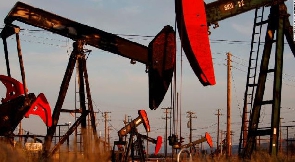A total of 25.3 billion cubic feet (bcf) of natural gas worth about $169million was lost in the upstream petroleum sector through flaring.
The 2022 Annual Public Interest Accountability Committee (PIAC) Report on Management and Use of Petroleum Revenue has revealed.
The volume of gas flared in 2022 increased by 19.3 per cent compared to a volume of 21.2 bcf recorded in 2021.
This constituted about 10 per cent of the total 253.56 bcf of both Associated Gas (AG) and Non-Associated Gas (NAG) produced from the three oil fields of Jubilee, Sankofa Gye-Nyame (SGN) and Tweneboa-Enyenra-Ntomme (TEN).
According to the energy think tank, African Centre for Energy Policy (ACEP) in a report titled ‘The state of the energy and extractive sectors of Ghana: Critical reforms required for sustainable economic recovery,’ about 47 billion cubic feet (bcf) valued at $300 million was lost to flaring between 2019 and 2021.
The Civil Society Organisation observed that the gas was flared at a time when domestic consumption of processed gas, known as liquefied petroleum gas (LPG), was growing exponentially, leading to increased imports.
Aside the economic loss of flaring, the activity is known to have a negative environmental impact and is a contributor to global warming.
Gas flaring is the burning of natural gas associated with oil extraction. It is regarded as a waste of a valuable natural resource that could either be used for productive purposes, such as generating power or conserved.
Meanwhile, the PIAC report, launched on April 20, 2023, noted that compared to the 2021 volume of 256.26 bcf of raw gas produced, the total production for 2022 represented a production decrease of 7.7 per cent.
Based on invoiced amounts on Gas from the Jubilee and TEN Fields, where the export volume of 31.6 bcf translated to US $211.5 million, it is estimated that flaring of 25.3 bcf of gas had resulted in a loss of about $169 million.
Speaking at the launch, Nasir Alfa Mohammed, the Vice Chair of PIAC, said the flaring of gas keeps occurring due to inadequate investment and lack of facilities to store and utilise the commodity.
The report further indicated that the SGN Field, relatively gas-concentrated, produced the highest volume of combined AG and NAG of 129.39 BCF while the Jubilee and TEN Fields produced 68.48 bcf and 55.68 bcf respectively.
A breakdown of the report revealed that gas production from the SGN field recorded an increase of 6.4 per cent from 121.6 bcf in 2021 to 129.39 bcf in 2022.
Meanwhile, the total gas flared for the period was 3.56 bcf, while a volume of 52.87 bcf was utilised as injected gas with a total of 67.9 bcf of gas exported to Ghana National Gas Company (GNGC) and 4.07 bcf used as fuel.
In the Jubilee fields, gas production decreased by 2.9 per cent from 70.53 bcf in 2021 to 68.48 bcf in 2022.
Also, a volume of 17.43 bcf representing 25 per cent of the total gas produced was injected for pressure support while a total volume of 3.76 bcf, representing 5 per cent of the total gas produced was used to power gas turbine generators.
A volume of 11.41 bcf, representing 17 per cent of the total gas produced was flared on the Kwame Nkrumah (KNK) Floating Production Storage Offloading Vessel (FPSO) while 35.88 bcf representing 52 per cent of gas produced was exported to GNGC.
It was also highlighted that gas production on the TEN Field declined by 13.2 per cent from 64.13 bcf in 2021 to 55.68 bcf in 2022.
About 68 per cent of gas produced in the field totalling 38.03 bcf was used as gas injection for pressure support while a volume of 10.33 bcf, representing 19 per cent of the total gas produced was flared.
A volume of 3.78 bcf of gas, representing 7 per cent of the produced gas was also exported to GNGC and a volume of 3.53 bcf, making up 6 per cent of produced gas was used for fuel.
Business News of Wednesday, 10 May 2023
Source: GNA













